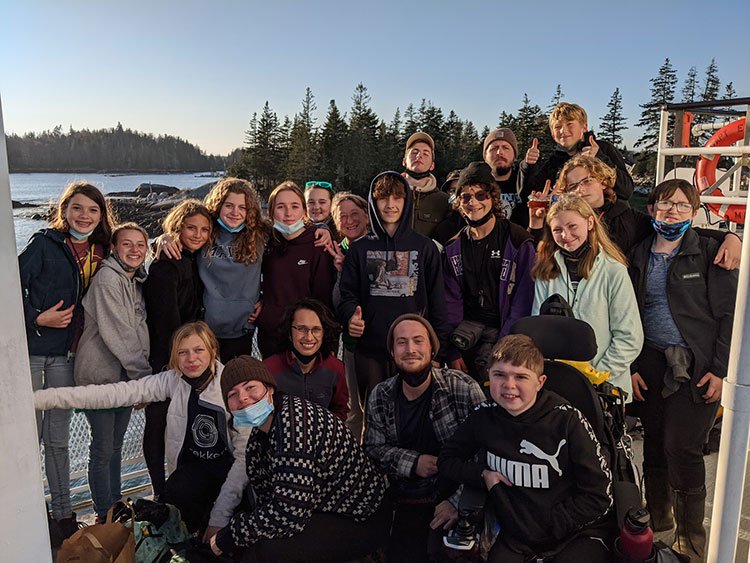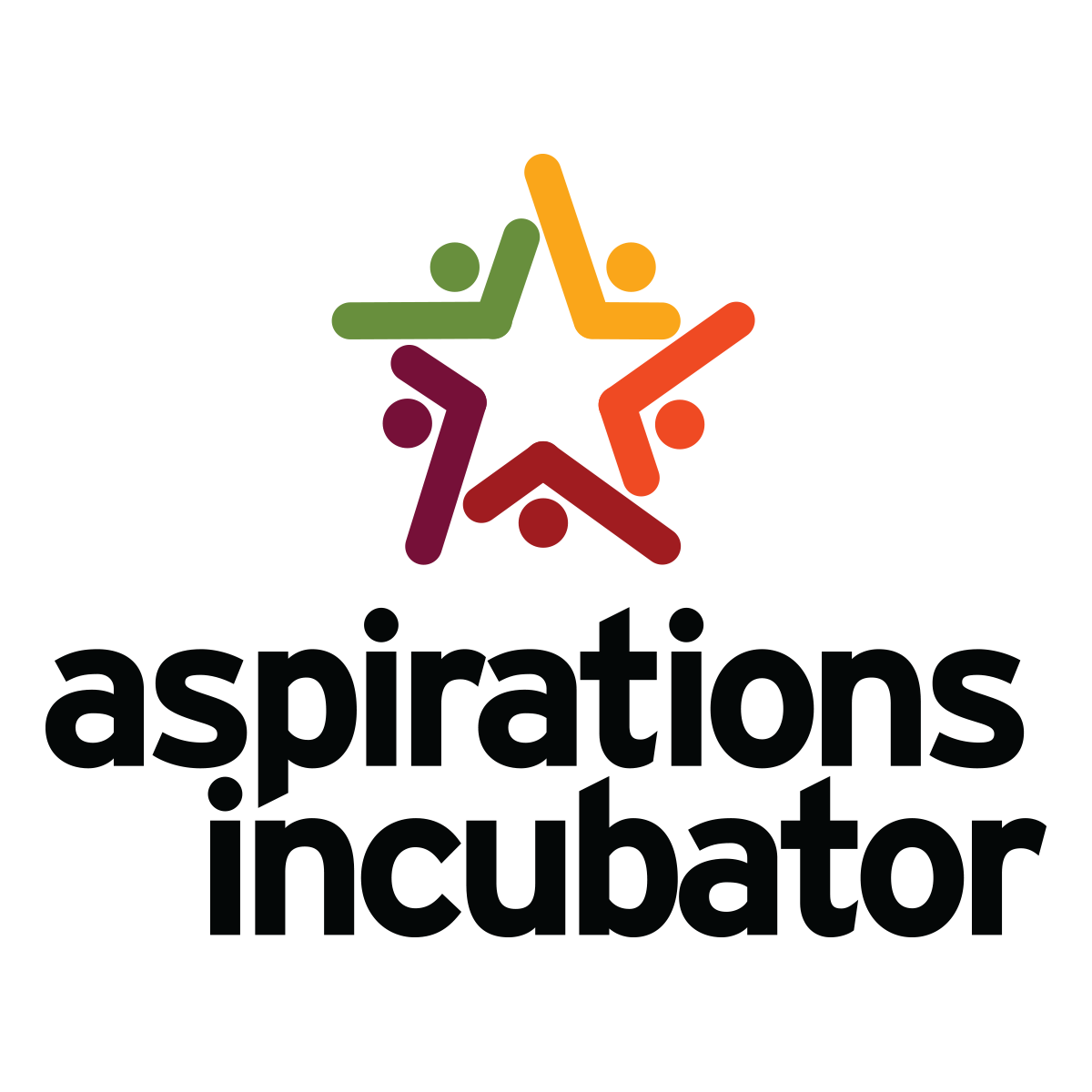
The Future
Strengthening Rural Youth Development
Sharing what works
The “Big Bet” of the Aspirations Incubator aimed to discern and to demonstrate what works to nurture and sustain aspirations for young people in rural communities. The final evaluation outcomes for the pilot initiative offer evidence that the Aspirations Incubator model is a successful approach to engaging rural youth and supporting them on their pathways to the future.
Measurable benefits for participants – particularly in the areas of relationships, resiliency, exposure to new ideas and experiences, and academic engagement – suggest that the Aspirations Incubator model holds real promise as a blueprint for other youth development programs in Maine and around the nation.
We believe the final results of the Aspirations Incubator evaluation are compelling and we remain fully committed to our goal of expanding the model to ensure that all rural students benefit from new experiences and supportive mentoring relationships that can set them on a path to success and fulfillment as contributing members of thriving communities.

Lessons Learned
In addition to tracking and analyzing student outcomes resulting from participation in the Aspirations Incubator, the evaluation team at Data Innovation Project evaluated the program implementation process over the course of the 6-year pilot project, and identified key lessons learned that could be valuable to share with the youth development field, including:
Relationships are Both a Tool and an Outcome
In the Aspirations Incubator program model, positive relationships function as both the vehicle by which outcomes occur, and an important outcome itself. When students develop and maintain strong and consistent relationships with their program manager and their peers over time, they feel safe. This sense of security is a necessary precondition for students to open up, feel greater confidence in themselves, and ultimately become active participants in planning their future. The practice of “looping” – where adult and older peer mentors work with a dedicated group of program participants from the start and stay with the group throughout the course of the program experience – allows for deeper and more meaningful relationships to develop over the years.
Many youth serving organizations focus on getting young people involved in a type of activity or experience - outdoor adventure, non-electronic games, expeditionary learning, or college-readiness. In a relationship-centered model, those activities are just the vehicle through which young people, their mentors, and peers develop an authentic, meaningful, and long-lasting relationship. Honoring this insight requires a theoretical and philosophical restructuring for any organization, program, or funder interested in this type of comprehensive mentoring and youth development.
Long-Term Engagement Values Depth over Breadth
The AI model is a long-term intervention that follows participants from 7th grade through their graduation or departure from high school. This structure calls for a shift away from the common philanthropic goal of reaching as many people as possible and requires funders and organizations to see the value in having a deeper impact on fewer people.
The most prominent impacts of this model are twofold. Long-term engagement fosters belonging. When compared to their peers across Maine, Cohort 1 reported feeling that they matter to the people in their community at a higher percentage than students in the same grade. This has greater implications for rural Maine students who have disproportionately lower rates of feeling they matter to their communities.
Long-term engagement also sustains aspirations. Cohort 1’s college-going aspirations were high at the end of middle school, dropped substantially by 10th grade, yet returned to the 8th grade level by 12th grade. The AI program helped students feel continuity and support through major transitions including from middle to high school and throughout the COVID-19 pandemic.
Funding a Long-Term Model Can be Sustainable
Although this evaluation did not include a return-on-investment analysis, financial data provided by the RFF did reveal some insights on the cost of funding long-term models. The average annual cost per program was $151,676, which covered all the direct and indirect costs of running six cohorts of 10-20 students at once. Accounting for fluctuations in cohort enrollment, the average annual cost per student was $2,002.
For comparison, the average cost per child in an afterschool program is $100 a week.[1] In Maine there are about 36 weeks in a school year, making the annual cost approximately $3,600; more than the year-round cost of an AI program. Several site staff and leadership also noted that the model is not particularly expensive and there are opportunities to distill the model further which would in turn reduce costs.
[1] Afterschool Alliance. (2020). America After 3PM: Demand Grows, Opportunity Shrinks. afterschoolalliance.org. https://afterschoolalliance.org/documents/AA3PM-2020/AA3PM-National-Report.pdf
Implications for Funders and Policy Makers
The implications of these results suggest that to improve rural young people’s lives through the vehicle of youth development interventions, youth-serving programs and organizations should consider making relationship-building and community-building the core of their work. Centering the relationships of young people, their families, and their community will also require programs to maintain this work over longer periods of time. Moreover, this paradigm shift to longer-term engagement and relationship-building has broader implications for philanthropy and policymakers, since they must also see the value of investing in deeper relational work.
Below are some ways funders and policymakers can use the lessons learned through the Aspirations Incubator pilot to better support rural youth in Maine. The following recommendations have been developed in consultation with the Rural Futures Fund leadership.
Ensure Universal Access to Aspiration-Building Programs
Champion the development and implementation of programs that nurture the aspirations of youth in every rural community across Maine. This priority seeks to ensure that all young people have an opportunity to engage in activities and experiences, both during school hours and in out-of-school settings, which inspire and expand their visions for the future.
Continue to Explore and Invest in Meaningful Alternative Post-Secondary Pathways
When investing in aspirations-building programs, there also needs to be concurrent initiatives focused on developing more meaningful and viable alternative post-secondary pathways. Two or four-year college is not the right choice for every young person in Maine, but every young person deserves to have a meaningful post-secondary plan.
Expand Teen Engagement Opportunities
Advocate for an increase in out-of-school programs targeting teenagers, recognizing the gap in attention and resources between early childhood and college/career access efforts in late high school. This priority aims to provide Maine's teenagers with a wider range of opportunities for personal growth, skill development, and positive engagement during out-of-school times.
Invest in Preventative Long-Term Mentoring
Call for greater investment in long-term, preventative mentoring programs to address the significant "mentor gap" in Maine's rural communities and foster deeper cross-generational community engagement. By ensuring more consistent and accessible mentorship, Maine's youth will benefit from a broader network of guidance and support while addressing ongoing issues of isolation and disengagement of young people in rural communities.
Prioritize Supporting Initiatives that Promote "Looping” in Youth Development Programs
"Looping" refers to the practice where youth development professionals maintain continuous connections with the same group of young individuals over multiple years. By investing in programs that embrace looping, funders and policymakers can facilitate deeper relationships and ensure continuity in the developmental support system for youth across Maine.
Invest in Field Level Research and Program Evaluation
Fund more rigorous research and evaluation studies to further elucidate the relationships between belongingness and post-secondary pathways for rural young people.
To learn more about our ideas for the future of the Aspirations Incubator, contact:
Meg Taft, Executive Director
info@ruralyouthinstitute.org
